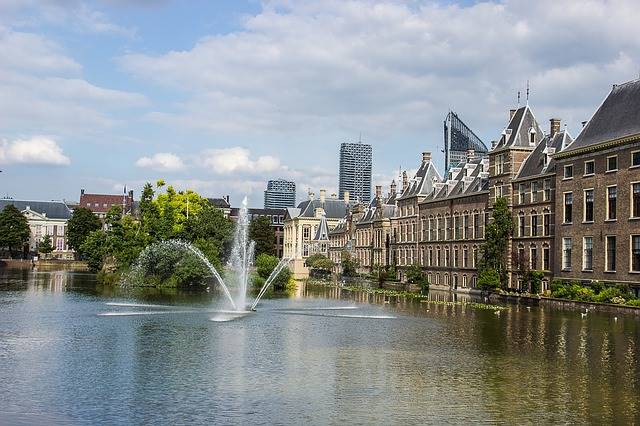The Dutch Social Benefit System: Dispelling Myths
 To an outsider, the Dutch social benefit system may seem easy to gain access to. However, accessing benefits in the Netherlands is not always easy and has its unique obstacles. Additionally, living off of benefits does not come without risks and consequences. There are three common myths regarding the Dutch social benefit system.
To an outsider, the Dutch social benefit system may seem easy to gain access to. However, accessing benefits in the Netherlands is not always easy and has its unique obstacles. Additionally, living off of benefits does not come without risks and consequences. There are three common myths regarding the Dutch social benefit system.
Myth #1: The Dutch Receive Benefits Indefinitely
Despite the Netherlands having a reputation for freely distributing welfare benefits, the Dutch social benefit system has become increasingly restrictive recently. This is due to increasing austerity measures, which have continued to intensify, even during the COVID-19 crisis.
Generally, to gain access to the Dutch social benefit system an individual needs to be a Dutch or European citizen, or alternatively, a registered resident. The individual must also be above the age of 18, not be imprisoned or detained, must have little or no income and must not receive a pension or other benefits.
While this may seem like easy entry criteria, the threshold for having social benefits cut is relatively low. Taking a non-student above the age of 21 into one’s home results in an automatic reduction of benefits. This is the case even if the person does not contribute financially and even if they would be homeless otherwise. Social benefit recipients are prohibited from receiving most gifts, even if they are clearly legitimate in nature and not an attempt to cheat the system. If one receives any form of assistance, even from a family member, the government will automatically reduce benefits.
Recently, one low-income, single mother was ordered to pay more than €7,000 after it became known that the woman’s mother would buy the family a bag of groceries once a week. Since the story came to light, the single mother’s case is being re-heard. It is not unheard of for people to be labeled as fraudsters for receiving modest gifts. If the victim’s case did not receive widespread attention, it is likely that the decision would have been upheld.
Myth #2: Foreigners Favored for Social Benefits
As mentioned, one of the first stipulations of receiving benefits is to be legally registered in the Netherlands. For low-income immigrants who have their asylum or residency applications rejected, this creates an overwhelming barrier to economic stability.
Over the past few years, the Dutch government has had to answer to the victims of the childcare benefits scandal, which saw thousands of parents legitimately receiving benefits for childcare having their benefits reclaimed.
Many of these parents were highlighted as potential fraudsters on the basis of having a second nationality and placed on a secret blacklist by the tax authorities. Later, they were denied benefits for things like simple paperwork mistakes or omissions. At one daycare center, only those with a second nationality had their benefits suddenly stripped. Clients with only a Dutch nationality were unaffected.
Myth #3: High Social Benefit Amounts
In many cases, what people receive is less than what they need to get by. For the city of Amsterdam, the net amount that a person may receive per month is €1,021.67 while the maximum for a family is €1,459.52. However, in Amsterdam, the cost of living surpasses that greatly. Those living on this amount must keep a grueling budget with little room for savings. Yet, if they were to receive another form of income to supplement this deficit, they could potentially lose all benefits entirely. This generates a system of poverty where people have little social mobility and must live mere subsistence lifestyles.
In February 2021, the government of the city of Breda chose to officially limit social benefits for homeless people, stating that the homeless do not need as much support money because they have a lower cost of living. The government justified this by stating that homeless people have no housing costs. The cuts had been in place since 2019 but have only recently become policy. The cuts were also motivated by antiquated ideas of addiction. One official invoked ending addiction as a reason to limit social benefits to homeless people.
Political Climate in the Netherlands
In March 2021, Wopke Hoekstra, the party leader of the Christian Democratic Appeal party proposed a plan to gradually reduce eligibility time for benefits. The plan would increase the benefits initially received by beneficiaries from 75% of their old wage to 90% for the first two months. The increase would then be 80% in the next four months and remain at the current 70% in the final six months. According to Hoekstra, the plan would save the government €600 million annually.
Further, over the past decade of government under Rutte’s ruling party, the People’s Party for Freedom and Democracy has pursued a policy of reducing benefits with the aim of eventually phasing out unemployment assistance by 2035 entirely. The Dutch government’s own planning offices have observed this process to be driving an increase in poverty.
Outlook Moving Forward
Poverty in the Netherlands currently occurs at a rate of about 8% of the general population. According to the Dutch Central Planning Bureau (CPB), this percentage is set to increase by one quarter over the next few years if the current plans for further austerity are followed through. The CPB recommends introducing a universal basic income as a solution, which would decrease poverty by 60%.
– Olivia Nelson
Photo: Pixabay
